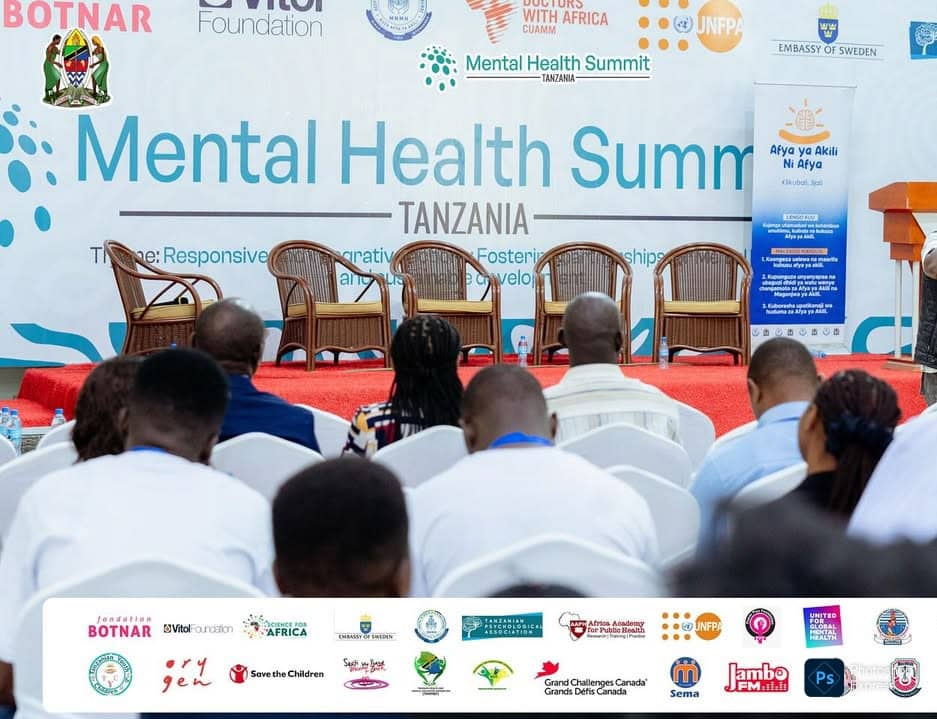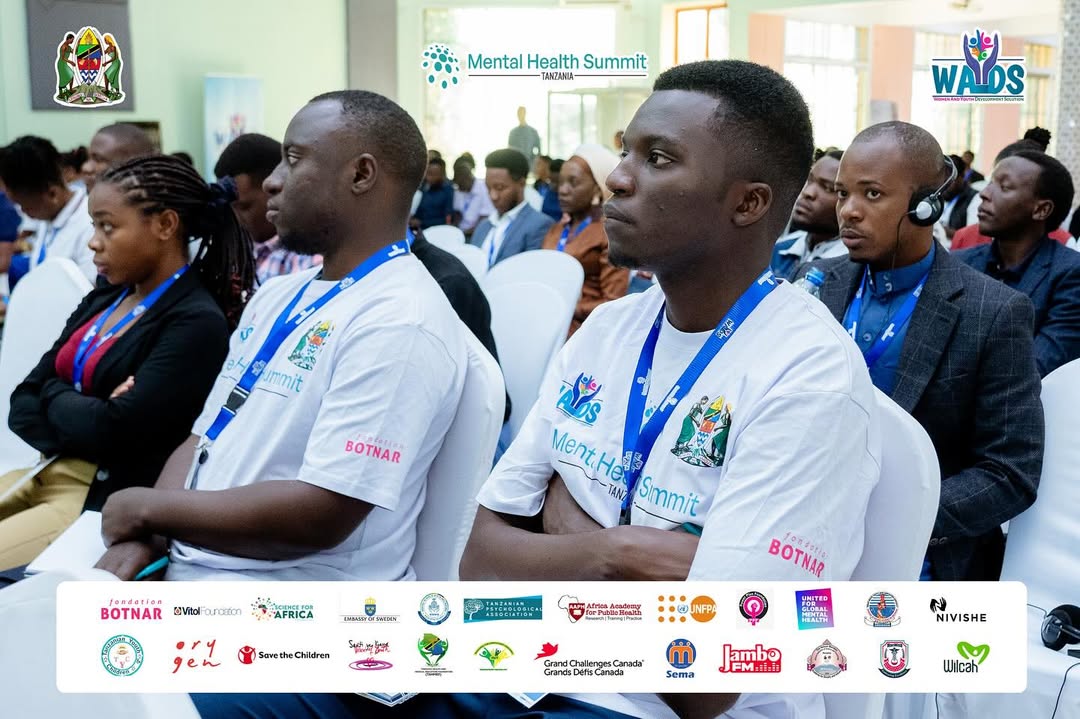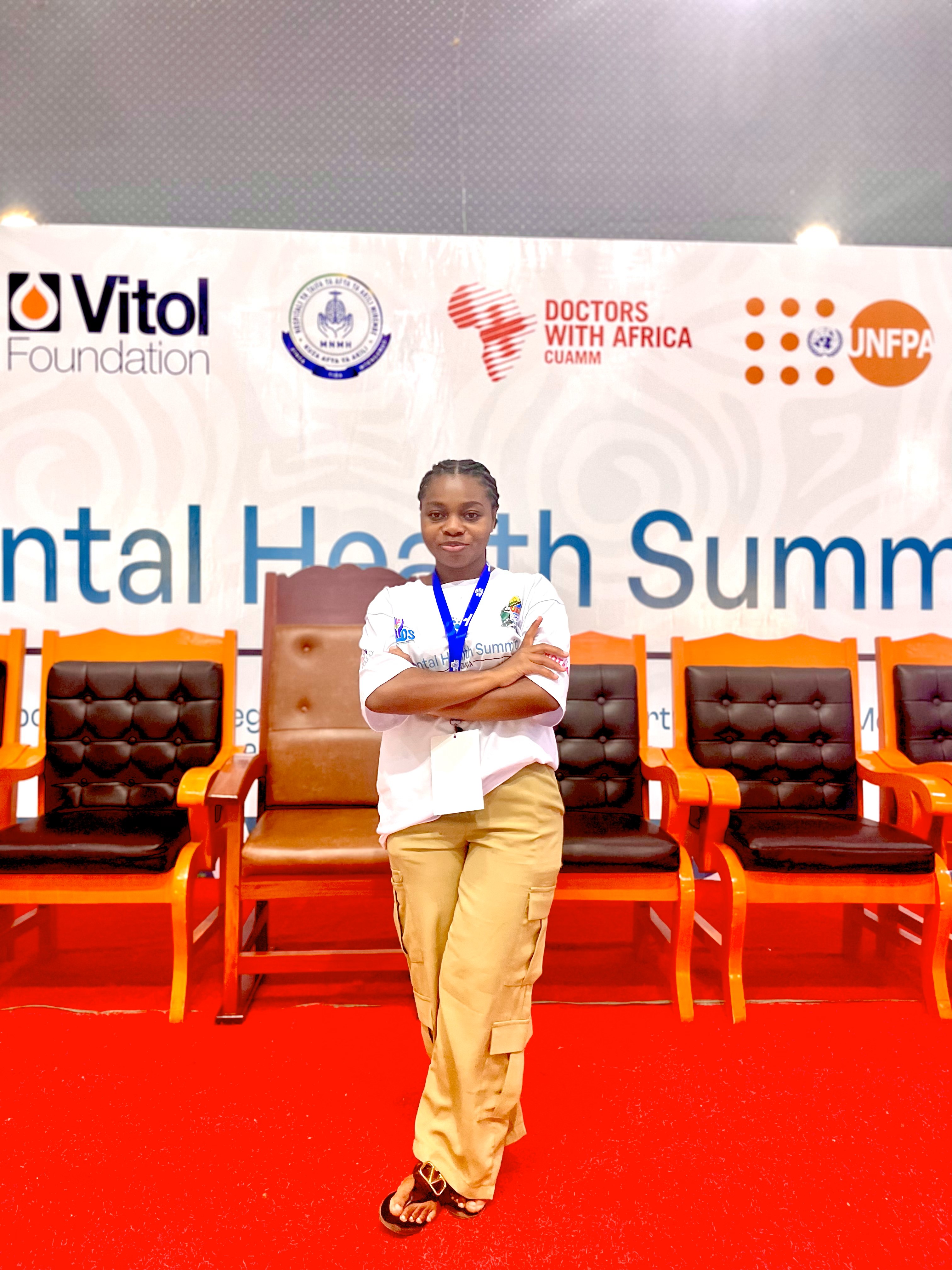
Tanzania Mental Health Summit 2025: A National Call to Action
By Gift Jairo (Md5 student at CUHAS-Bugando), Published on June 01, 2025
Introduction
The Tanzania Mental Health Summit 2025, held from May 30–31 in Kahama, Shinyanga Region, marked a pivotal moment in the nation's commitment to mental health. Organized by the Women and Youth Development Solution (WAYDS) in collaboration with the Ministry of Health, Mirembe National Mental Health Hospital, and international partners including WHO, UNFPA, and Fondation Botnar, the summit convened over 300 delegates from all 26 regions of Tanzania. Under the theme “Responsive and Integrative Action; Fostering Partnership for Mental Health and Sustainable Development,” the event aimed to catalyze a unified response to the country's pressing mental health challenges.
Main Content
The summit was officially opened by Hon. Mboni Mhita, the District Commissioner of Kahama, who emphasized the government’s growing commitment to integrating mental health into national development strategies. Her address highlighted the urgent need to move mental health out of the shadows and ensure it receives the attention and resources it deserves.
Discussions throughout the summit focused on three core areas: youth mental health, innovation in care delivery, and policy development. One of the major themes was the mental well-being of young people, especially those living with HIV. Speakers emphasized the importance of addressing stigma and providing psychosocial support in schools, homes, and healthcare settings. Participants also explored how digital platforms and community-led models can enhance access to mental health services, particularly in rural areas where professional support remains scarce.

Panel discussions and technical workshops facilitated knowledge exchange between professionals, government leaders, and grassroots organizations. These sessions emphasized the integration of mental health into Tanzania’s primary healthcare system, capacity building among frontline workers, and the importance of sustainable funding. Exhibitions and side events showcased innovations, research, and real-life stories from individuals and communities championing mental health.
The summit was not only a gathering of experts but also a call to action for everyone—policymakers, healthcare providers, educators, youth, and civil society—to unite and champion mental health as a fundamental human right and a development priority.
The Tanzania Mental Health Summit 2025 concluded with a shared commitment among participants to build a more inclusive and responsive mental health system in the country. Delegates pledged to promote awareness, improve access to services, and push for the implementation of policies that support mental wellness. The summit strengthened networks, inspired innovation, and reaffirmed the importance of putting mental health at the heart of Tanzania’s national agenda. Moving forward, it will serve as a foundation for continued collaboration, investment, and action.

Conclusion
Attending the Tanzania Mental Health Summit 2025 was a significant opportunity for MyDoctor.tz to reinforce its commitment to promoting mental well-being across Tanzania. The summit highlighted the urgent need for inclusive, community-based mental health solutions, which aligns with MyDoctor.tz's mission of providing accessible health education and digital support. By participating, MyDoctor.tz not only showcased its digital innovations and youth-driven awareness campaigns but also established strategic collaborations with health institutions and advocates. The platform reaffirmed its role as a trusted, tech-enabled ally in destigmatizing mental health, reaching underserved populations, and contributing to national efforts through education, early intervention, and digital health services.
Frequently Asked Questions (FAQs)
Why is mental health important to national development?
Mental health is essential for productivity, learning, relationships, and overall well-being. When people experience mental health challenges without support, it can affect education, employment, and social stability. Investing in mental health leads to a healthier, more resilient population capable of contributing meaningfully to the country’s growth.
What are the most common mental health challenges in Tanzania?
Some of the most common challenges include depression, anxiety, substance use disorders, and trauma-related conditions. Factors such as poverty, unemployment, HIV, gender-based violence, and stigma can increase the risk of mental health issues, especially among youth and marginalized groups.
Why do many people avoid seeking mental health help?
Many Tanzanians do not seek help due to stigma, lack of awareness, and limited access to mental health services. In some communities, mental illness is misunderstood or associated with spiritual beliefs, which can prevent people from recognizing it as a medical condition that requires professional support.
How can mental health services be improved in Tanzania?
Mental health services can be improved by integrating them into primary healthcare, training more mental health professionals, raising public awareness, and investing in community-based support systems. Events like the Tanzania Mental Health Summit help drive national attention and policy reform to ensure mental health care is available and accessible for all.
